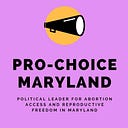Your boss can now make decisions about your birth control, courtesy of the Supreme Court
by Amita Chatterjee
On Wednesday, July 8th, the U.S. Supreme Court released its ruling on Little Sisters of the Poor v. Pennsylvania and Trump v. Pennsylvania, two combined cases addressing the crossover of healthcare and religious freedom. Under the Affordable Care Act (ACA), employers are required to cover contraceptive care in their health insurance plans. Little Sisters, an order of nuns, and the Trump/Pence administration hoped to reverse that mandate, claiming employers may have a religious or moral obligation against covering contraceptives. The court sided with Little Sisters and the Trump/Pence administration with a 7–2 majority, ruling that the Obamacare mandate violated religious freedom.
The religious objection to the birth control pill is rooted in the fact that it’s a contraceptive, but what a moral objective means is still unclear. Some religious groups believe the birth control pill is an abortion-inducing drug, a claim with no factual basis. According to the Guttmacher Institute, only 42% of those on the pill use it exclusively as a contraceptive. This means that the birth control pill is much more than just a contraceptive. Though the primary purpose of the pill is to prevent pregnancy, it has a wide range of other uses: to regulate the menstrual cycle, cure hormonal acne, and reduce the risk of certain cancers and ovarian cysts, just to name a few.
It is important to remember that regardless of a person’s reasoning for using the pill, they should not have to justify their choice. It is an FDA approved medication, and everyone has the right to have autonomy over their body and healthcare.
The impact this ruling will have on everyone who uses birth control is very grim. According to a 2012 report from the Center for Disease and Control (CDC), 10.6 million people used the birth control pill.
Their access to this care may now be threatened. If someone’s insurance does not cover their birth control access, they may have to pay up to $800 annually. This makes the pill inaccessible to patients who are low-income, unemployed, or still students.
This ruling is also a devastating blow to young people who use the pill. For adolescents and teens, irregular menstrual cycles are common. The possibility of being surprised by your period at school is daunting, especially when many schools do not have pads and tampons available in restrooms. Dealing with cramps, headaches, nausea, back pain, and other unpredictable side effects of a period can be a large burden on young students to deal with on top of school or other activities. 82% of people on the pill aged 15–19 cite non-contraceptive use as their reason for taking it.
For college students, access to reproductive care while at school is already difficult, especially at institutions with religious affiliations. Among college students, the birth control pill is the second most used form of contraception, next to the male condom. If schools are allowed to restrict birth control access from their student’s health care plans or the campus health center, there will be an increase in unplanned pregnancy.
On top of that, most schools do not have emergency contraception (EC) readily available. Many students do not have the resources to transport themselves to an off-campus pharmacy and pay the full price for emergency contraceptives, which can cost as much as $70 when paying out of pocket. To avoid this stress, colleges and universities can protect their students by providing a wide range of reproductive services at already existing on-campus health centers. If a school provides health insurance to students, birth control should be covered and available regardless of any religious affiliation the college may have.
After the Court’s ruling was released, many young people took to Twitter to express their frustration on the newest restriction of reproductive rights.
Some were making fun of the religious argument used to restrict contraceptives.
Twitter user, @sarahclazarus tweeted, “unfortunately we will not be able to cover the medicine that keeps you from throwing up from pain every month. But we have a good reason! A lady ate an apple in our favorite book.”
She got 290,000 likes and 51,000 retweets.
If the moral and religious argument used to attack certain medications is that they promote sex for pleasure and not procreation, Viagra should also be at the center of this conversation. Many users were pointing out that if birth control is always being targeted due to its role in people’s sex lives, then erectile dysfunction medications should also be scrutinized for the same reasons.
A common message echoed on social media was that if pregnancy is God’s will, so is erectile dysfunction.
Katie Porter, a Democratic Representative from California, tweeted,
“Wondering if there’s a reason employers object to providing birth control but not Viagra? Asking for more than half of the population.”
The court says employers now do not have to cover birth control if it is against their religious or moral beliefs. However, the government funds the US Military, which spends $84 million annually for Viagra and other erectile dysfunction medications. But there has never been widespread pushback to these medications like there has been against birth control.
Birth control must be made affordable and accessible for anyone who needs it, regardless of their reasoning. Religious freedom should never grant a person or institution the grounds to discriminate against someone or restrict an individual’s bodily autonomy.
